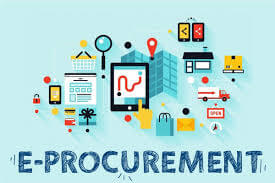E-procurement strategies have undergone a profound transformation, now focusing on the development of resilient supply chains, diversification of suppliers, and the implementation of sophisticated risk management protocols. These strategies are essential for ensuring adaptability and continuity in the face of unpredictable market conditions and global uncertainties. In addition to these tactical adjustments, sustainability has emerged as a central theme in e-procurement, reflecting a broader commitment to environmental stewardship and social responsibility.
The ongoing growth of e-procurement is closely tied to the broader trend of digital transformation. Companies are increasingly prioritizing digital solutions to enhance their efficiency, reduce operational costs, and improve overall performance. This digital shift is often led by procurement teams, underscoring the critical role that e-procurement plays in modern business environments. Over the past three decades, e-sourcing tools have evolved significantly, becoming more affordable and effective. These tools now cover every step of the e-procurement process, from initial sourcing to final contract management, offering businesses comprehensive solutions to streamline their procurement activities.
In today’s digital age, the use of e-procurement tools has become second nature to procurement professionals. These tools provide a range of benefits, including improved efficiency, cost savings, and enhanced insights into profitability. The integration of digital solutions into procurement processes has not only optimized operations but also redefined the role of procurement teams within organizations. By leveraging these advanced tools, procurement professionals have elevated their function from a support role to a strategic partner. This shift has allowed them to contribute more effectively to organizational goals, drive strategic decision-making, and support broader business objectives.
The adoption of popular e-procurement tools has fundamentally changed the perception of procurement teams. Once viewed primarily as operational support, these teams are now recognized for their strategic impact and involvement in driving business success. The ability to leverage digital tools to gain valuable insights, manage risks, and foster supplier relationships has positioned procurement as a key player in achieving competitive advantage and organizational growth. As the landscape of e-procurement continues to evolve, businesses that embrace these advancements will be better equipped to navigate the complexities of the modern market and realize their strategic ambitions.











